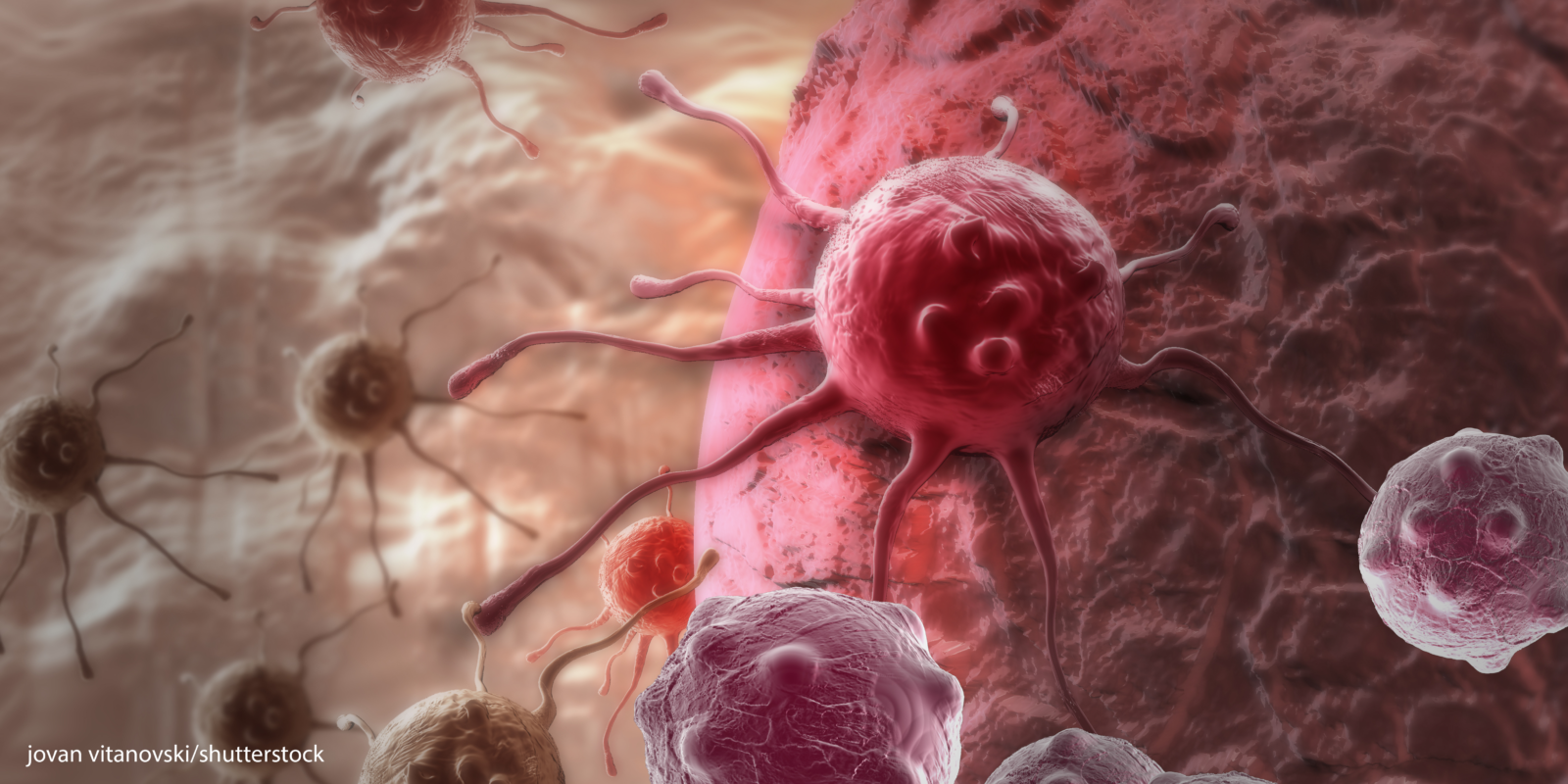A kiss of death for prostate cancer
Research Press Release | December 22, 2017

Hokkaido University researchers have uncovered a cellular protein that stabilizes a tumor promoting signaling pathway, suggesting a new target to treat prostate cancer.
The drug Gefitinib is used to treat breast, lung, and other cancers by inhibiting epidermal growth factor receptor (EGFR) signaling, but it has only a limited effect on prostate cancer. EGFR, present on the cell membrane, is involved in cell proliferation and the development of dermis, lung, and digestive tissues. When a mutation causes its over-activation, it can lead to increased cell proliferation and tumor formation.
Tadashi Matsuda of Hokkaido University and his colleagues in Japan investigated human prostate cancer cells to determine if there is an unknown up-regulation mechanism in the EGFR pathway.
When EGFR is attached to a small protein called ubiquitin, it is given “the kiss of death” and tagged for degradation inside the cell. This tagging process is facilitated by a protein called c-CBL. The degradation of EGFR leads to less signaling from the receptor and reduced cell proliferation.
Matsuda and his team found that signal-transducing adaptor protein-2 (STAP-2) stabilizes EGFR by inhibiting its c-CBL-mediated ubiquitination. Furthermore, when the team suppressed STAP-2, the prostate cancer cells showed reduced proliferation and did not form a tumor when transplanted into mice.
“STAP-2 inhibitors could play a role in treating Gefitinib-resistant prostate cancers. Further studies on STAP-2 will provide new insights into cancer physiology and support the development of anticancer therapies,” says Tadashi Matsuda. The study was published in the Journal of Biological Chemistry.
Original article:
Kitai Y., et al., STAP-2 protein promotes prostate cancer growth by enhancing epidermal growth factor receptor stabilization. Journal of Biological Chemistry, October 6, 2017.
DOI: 10.1074/jbc.M117.802884
Funding Information:
This study was supported in part by a grant-in-aid for scientific research from the Ministry of Education, Culture, Sports, Science, and Technology (MEXT) of Japan.
Contacts:
Professor Tadashi Matsuda
Graduate School of Pharmaceutical Sciences
Hokkaido University
E-mail: tmatsuda[at]pharm.hokudai.ac.jp
Naoki Namba (Media Officer)
Global Relations Office
Institute for International Collaboration
Hokkaido University
Tel: +81-11-706-2185
Email: pr[at]oia.hokudai.ac.jp
